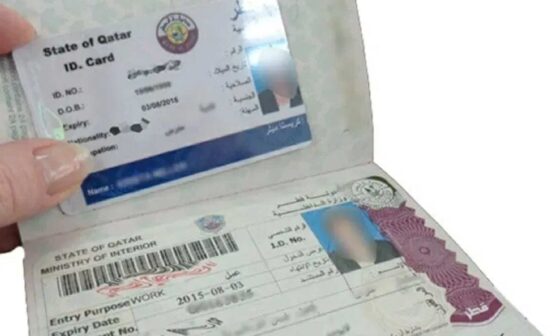The demand for care homes in the USA with visa sponsorship is at an all-time high. With an aging population and a growing need for elderly care, many U.S. care facilities are turning to international caregivers to fill critical roles. If you have a strong passion for providing care and are seeking a legal pathway to work in the USA, this could be your ideal opportunity. In this guide, I’ll walk you through everything you need to know about care homes in the USA that offer visa sponsorship, from eligibility requirements to application tips, processing times, and key benefits. Whether you’re an experienced caregiver or someone looking to enter the field, this guide will set you on the right path.
What Are Care Homes in the USA?
Care homes, also known as nursing homes, assisted living facilities, or residential care facilities, provide round-the-clock care for individuals who need medical assistance, personal care, or help with daily activities. These facilities cater to a broad spectrum of individuals, including:
- Seniors who need long-term care due to aging-related conditions.
- People recovering from surgeries, accidents, or severe illnesses.
- Individuals with disabilities who require full-time assistance.
- Patients suffering from chronic illnesses who need continuous monitoring.
Care homes play a vital role in the U.S. healthcare system, ensuring that vulnerable individuals receive quality care, social engagement, and medical supervision to improve their quality of life.
Types of Care Homes in the USA
#1. Nursing Homes
- Provide 24/7 medical supervision by registered nurses and licensed caregivers.
- Best suited for elderly individuals with chronic illnesses, disabilities, or mobility issues.
- Include rehabilitation services like physical therapy and occupational therapy.
#2. Assisted Living Facilities
- Residents maintain some independence while receiving assistance with daily activities such as bathing, dressing, and medication management.
- Offer social programs, communal dining, and recreational activities to promote engagement.
- Suitable for seniors who do not require intensive medical care but need help with personal care.
#3. Memory Care Facilities
- Cater specifically to individuals suffering from Alzheimer’s disease or other forms of dementia.
- Provide secured environments to prevent wandering and confusion.
- Offer specialized cognitive therapy and structured activities to support memory retention.
#4. Hospice Care Homes
- Focus on end-of-life care for terminally ill patients.
- Provide pain management, palliative care, and emotional support for both patients and their families.
- Typically managed by teams of doctors, nurses, and spiritual advisors.
#5. Group Homes
- Small, community-based residential facilities that provide personalized care for individuals with disabilities or mental health conditions.
- Residents live in shared spaces, receiving 24/7 support from caregivers.
- Often designed to encourage independent living while ensuring safety and medical supervision.
Why Care Homes in the USA Offer Visa Sponsorship
With a rapidly aging population and a critical shortage of healthcare workers, many U.S. care homes are turning to foreign caregivers to fill their staffing needs.
According to the U.S. Census Bureau, the number of Americans aged 65 and older will double by 2050, creating an unprecedented demand for professional caregivers. The Bureau of Labor Statistics (BLS) also projects that home health and personal care aide jobs will grow by 22% from 2022 to 2032—making it one of the fastest-growing occupations in the U.S.
Reasons Why Care Homes Offer Visa Sponsorship
1. Labor Shortage in the U.S. Healthcare Sector
- The caregiving workforce is aging, and many U.S. caregivers are retiring, creating a labor gap.
- There are not enough trained professionals to meet the rising demand for elderly and disability care.
2. Rising Demand for Caregiving Services
- More than 1.5 million people live in care homes across the U.S., with this number expected to increase.
- Many elderly individuals prefer long-term residential care facilities over hospital stays.
3. Government Policies Encouraging Skilled Immigration
- The EB-3 and H-2B visa programs help address workforce shortages by allowing foreign caregivers to fill in-demand positions.
- Certain states offer incentives and grants to care facilities that hire qualified international healthcare workers.
4. Growth of Home-Based and Assisted Living Care
- More Americans are choosing assisted living over hospitalization, increasing the demand for trained caregivers.
- With more home care agencies opening, visa sponsorship is now more common among private caregiving companies and assisted living chains.
Visa Options for Caregivers in the USA
To work in a U.S. care home, you’ll need a valid work visa. Here are the most common visa sponsorship options for caregivers:
Advertisements
#1. H-2B Visa (Temporary Non-Agricultural Worker Visa)
- Designed for temporary caregiving positions
- Requires an employer to prove that no U.S. workers are available
- Valid for up to 3 years
#2. EB-3 Visa (Employment-Based Green Card for Skilled & Unskilled Workers)
- Offers permanent residency (green card)
- Requires sponsorship from an employer willing to commit to long-term
- Suitable for certified nursing assistants (CNAs), home health aides, and personal care aides
#3. J-1 Visa (Exchange Visitor Program for Healthcare Workers)
- For caregivers participating in training or cultural exchange programs
- Valid for 1–5 years, depending on the program
- Often leads to long-term employment opportunities
How to Qualify for Visa Sponsorship Caregiver Jobs
#1. Experience
- Most care homes prefer candidates with prior caregiving experience (paid or unpaid).
- Volunteering at nursing homes, hospitals, or home care services can be an added advantage.
- Experience caring for elderly individuals, disabled persons, or those with chronic illnesses strengthens your application.
#2. Certifications
- Certified Nursing Assistant (CNA) or Home Health Aide (HHA) certification is often required.
- Some employers train employees after hiring, but having pre-existing certification improves your chances.
- Certain states require specific caregiving licenses depending on job responsibilities.
#3. English Proficiency
- Fluency in English is essential for communicating with patients, families, and healthcare professionals.
- Some employers may require proof of English proficiency, such as TOEFL, IELTS, or an employer-administered language test.
#4. Background Check
All caregivers must pass a criminal background check and medical examination before being approved for work.
Drug screening tests and reference verification are also common employer requirements.
Additional Qualifications That Improve Your Chances
- CPR and First Aid Certification: Many care homes prefer caregivers with basic emergency medical response skills.
- Specialized Training: Certifications in dementia care, hospice care, or palliative care can give you an edge.
- Recommendations: Letters from previous employers, clients, or supervisors can strengthen your application.
- Lifting and Mobility Training: Experience in assisting bedridden patients or individuals with mobility issues is highly valued.
- Valid Driver’s License: Some caregiving jobs require transportation, so having a valid U.S. or international driver’s permit is helpful.
How to Find Care Homes in the USA with Visa Sponsorship
If you meet the qualifications, the next step is finding care homes that offer visa sponsorship.
#1. Job Portals Specializing in Caregiving
🖥 Online job platforms can help you connect with employers looking for foreign caregivers:
- Indeed – Search for “caregiver jobs with visa sponsorship USA.”
- Care.com – Specializes in-home care and private caregiving jobs.
- SimplyHired – Has a dedicated section for foreign workers in caregiving roles.
- MyCNAJobs – Specifically for CNA, HHA, and personal care aide roles.
- Glassdoor & ZipRecruiter – Often list care homes seeking international workers.
#2. Agencies That Sponsor Foreign Caregivers
Some U.S. healthcare agencies actively sponsor caregivers from abroad:
- Maxim Healthcare Services – Offers live-in and hourly home health aide positions.
- Visiting Angels – Provides visa sponsorship for international caregivers.
- Right at Home – Specializes in senior care and personal support.
- Bayada Home Health Care – Hires certified caregivers with sponsorship options.
- Comfort Keepers – Offers home health aide and companion caregiver jobs.
- HCR ManorCare – Operates skilled nursing and rehabilitation centers that sponsor workers.
📝 Tip: Contact these agencies via their official websites to inquire about visa sponsorship programs.
Advertisements
#3. Networking & Professional Associations
- LinkedIn Groups: Join caregiving and healthcare industry groups to connect with recruiters.
- Healthcare Job Fairs: Many hospitals and care homes attend international job fairs looking for qualified caregivers.
- Referrals: If you have friends or family in healthcare, ask them to refer you to an employer willing to sponsor foreign workers.
Top U.S. Care Homes Offering Visa Sponsorship
These top U.S. care homes are known to recruit international caregivers and offer visa sponsorship:
- Brookdale Senior Living – One of the largest assisted living and memory care providers in the U.S.
- Atria Senior Living – Regularly hires CNAs and caregivers from abroad.
- Sunrise Senior Living – Actively recruits international healthcare professionals.
- Comfort Keepers – Offers home health aide positions with sponsorship benefits.
- Home Instead Senior Care – A well-known agency that frequently sponsors caregivers.
- Bayada Home Health Care – Provides opportunities for certified caregivers.
- HCR ManorCare – Specializes in skilled nursing, therapy, and assisted living.
- Visiting Angels – Offers live-in and hourly caregiving positions.
- Right at Home – Hires foreign caregivers for home-based senior care.
- Maxim Healthcare Services – Known for hiring international home healthcare professionals.
Benefits of Working in a Care Home in the USA
#1. Competitive Salaries
- The U.S. Bureau of Labor Statistics (BLS, 2023) reports that the average caregiver salary in the U.S. ranges from $28,000 to $35,000 per year.
- Caregivers in high-demand states like California, New York, and Texas earn higher wages, especially those in specialized care (e.g., dementia or hospice care).
- Overtime pay and shift differentials (extra pay for night shifts or weekends) can further boost earnings.
#2. Career Growth & Professional Development
- Many care homes offer free or subsidized training programs to help caregivers advance into:
- Certified Nursing Assistants (CNAs)
- Licensed Practical Nurses (LPNs)
- Registered Nurses (RNs) (with additional education and training)
- Specialized caregiving roles (e.g., dementia care, post-surgical care) often lead to higher salaries and more responsibilities.
- Some care homes partner with educational institutions to provide scholarships or tuition reimbursement for employees pursuing nursing degrees.
#3. Visa Sponsorship & Immigration Pathway
- Many care homes in the U.S. offer visa sponsorship, allowing foreign caregivers to work and live legally in the country.
- Caregivers on H-2B, J-1, or EB-3 visas can transition to permanent residency (Green Card) if they meet eligibility requirements.
- Some care homes sponsor employees for long-term work visas or employment-based Green Cards, providing a pathway to U.S. citizenship.
#4. Personal Fulfillment & Job Satisfaction
- Caregiving offers a deep sense of purpose, as caregivers directly impact patients’ lives.
- Many caregivers build strong emotional connections with residents, fostering meaningful relationships.
- The job is recession-proof, with consistent demand due to the aging U.S. population.
- Caregivers also gain valuable life skills, such as empathy, patience, medical knowledge, and problem-solving.
Challenges of Working in a Care Home & How to Overcome Them
#1. Cultural Adjustment
Challenge:
- International caregivers may find it challenging to adapt to U.S. caregiving standards, workplace expectations, and elderly care practices.
- Differences in communication styles, dietary preferences, and medical protocols can be overwhelming.
Solution:
- Take online courses on U.S. caregiving standards and cultural sensitivity.
- Join caregiver support groups or network with experienced professionals for guidance.
- Participate in orientation programs provided by your employer.
#2. Certification & Licensing Requirements
Challenge:
- Some U.S. states require additional certifications beyond international qualifications.
- Certain care homes prefer caregivers with CNA (Certified Nursing Assistant) or HHA (Home Health Aide) certification.
Solution:
- Enroll in a state-approved CNA or HHA training program.
- Pass required exams, such as CPR and First Aid certifications.
- Research the specific requirements for the state you plan to work in.
#3. Workload & Physical Demands
Challenge:
- Caregiving can be physically demanding, with responsibilities like lifting patients, assisting with mobility, and managing multiple residents.
- Long working hours, night shifts, and emotional exhaustion can lead to burnout.
Solution:
- Develop strong time management skills to balance tasks efficiently.
- Take regular breaks and prioritize self-care to avoid burnout.
- Use ergonomic techniques for patient lifting and movement to prevent injuries.
- Advocate for work-life balance and communicate with supervisors if the workload is excessive.
Key Takeaways
- Care homes in the USA actively hire foreign caregivers through visa sponsorship due to labor shortages.
- The EB-3, H-2B, and J-1 visas are the most common pathways for international caregivers.
- Major employers include Brookdale, Home Instead, and Visiting Angels, among others.
- The demand for caregivers is growing, with the industry expected to increase by 22% by 2032.
- A certified nursing assistant (CNA) or home health aide (HHA) certification can improve job prospects.
Conclusion
Working in care homes in the USA with visa sponsorship can be a life-changing opportunity. Whether you’re seeking financial stability, career growth, or permanent residency, the demand for caregivers continues to rise. With the right qualifications and job search strategy, you can secure a rewarding role in the U.S.
Are you ready to take the first step toward a caregiver job in the USA? 🚀
Related Articles
- Can Immigration Sponsorship Be Revoked? What Immigrants and Sponsors Need to Know
- Top 10 Visa Sponsorship Caregiver Jobs in the USA
- Mathematics Teaching Jobs in the USA with Visa Sponsorship: A Complete Guide
- How to Get Elderly Care Jobs in the USA with Visa Sponsorship: A Step-by-Step Guide
- Top 10 Visa by Investment Programs: A Guide to Residency & Citizenship Through Investment
Advertisements






